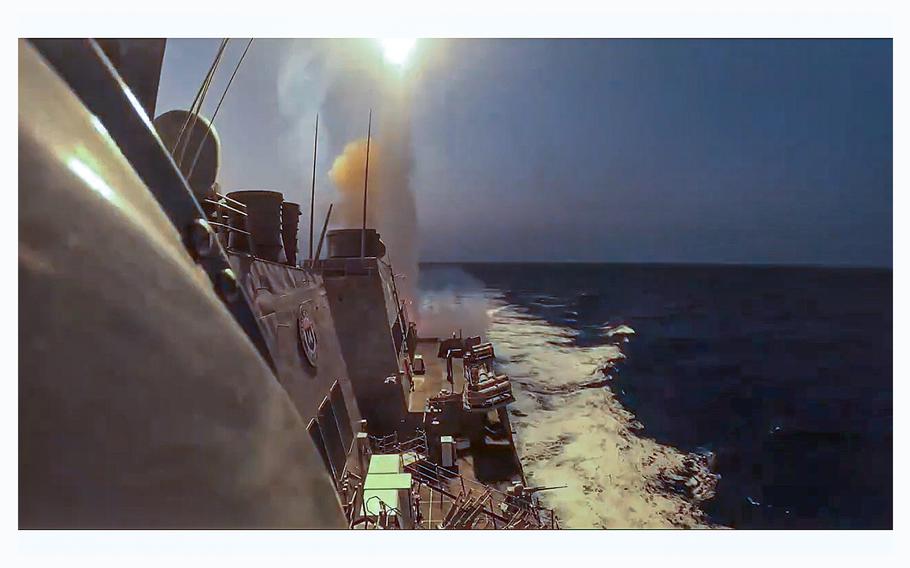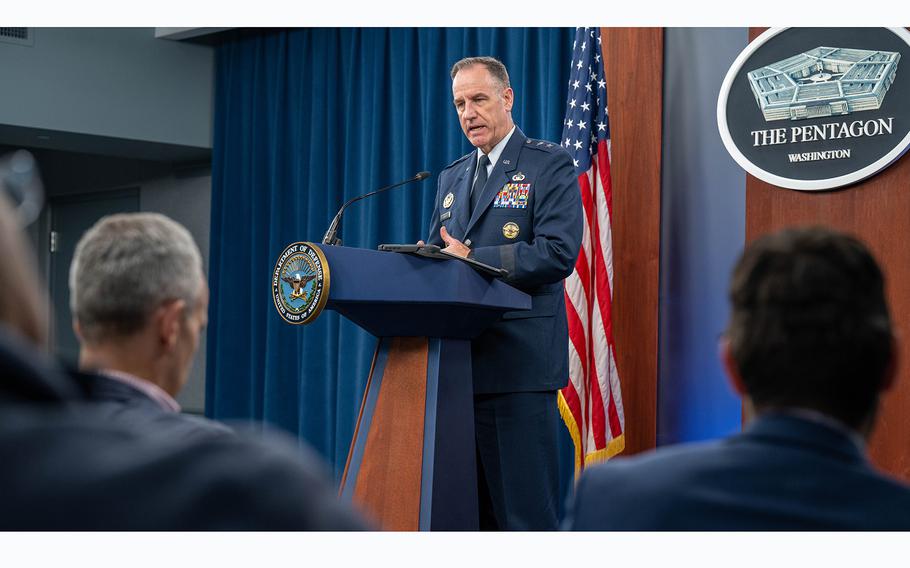
A screen grab from a video posted on Dec. 9, 2023, shows the Arleigh Burke-class guided-missile destroyer USS Carney (DDG 64) defeating a combination of Houthi missiles and unmanned aerial vehicles in the U.S. 5th Fleet area of operations. (Aaron Lau/ U.S. Navy)
The US’s new international naval coalition will serve as a “highway patrol” to protect shipping in the Red Sea from attacks by Iran-backed Houthi militants even though it won’t escort individual vessels, a Pentagon spokesman said.
The force, announced Monday, will patrol “the Red Sea and the Gulf of Aden to respond to and assist as necessary commercial vessels,” Maj. Gen. Pat Ryder said in a phone interview Friday. He said he didn’t want to understate the challenge but said the effort will be enough to “reassure global shipping and mariners that they can safely transit the Red Sea area.”
The world’s major container and oil shippers announced they would route their vessels away from the Red Sea after a series of attacks by Houthi militias in the weeks since Hamas attacked southern Israel on Oct. 7 and Israel responded with punishing airstrikes. The Houthi attacks roiled shipping markets and helped push up oil prices.
The group has vowed to keep up attacks against commercial shippers along the Red Sea, which carries some 12% of global maritime trade, even after the coalition was created, and warned they will target US warships if the US opts for military strikes on the group’s bases.
The US is considering military action against the Houthis, though still prefers a diplomatic solution, Bloomberg has reported. Washington has announced it’s secured the support so far of 20 Western and Arab allies to bolster its maritime protection force.
“Right now we continue to see the coalition growing,” said Ryder. “We expect it to continue to grow.”

Pentagon Press Secretary U.S. Air Force Maj. Gen. Pat Ryder attends a briefing at the Pentagon, Washington, D.C., on Dec. 21, 2023. (Cesar J. Navarro/U.S. Air Force)
So far this week, the number of vessels entering the Red Sea has dropped more than 40% versus the daily average over the past three weeks, according to ship-tracking data compiled by Bloomberg.
There are expected to be too few military vessels and too many commercial ships for individual escorts. That means it’s still an open question whether shippers will route their vessels back through the Red Sea once the coalition is up and running.
Some military experts have expressed doubts the US-led force has the capability to protect the several hundred ships that at a given time usually cross the area without pre-emptive action against the Houthis.
“Tactics may shift and change,” Ryder said of the effort to cover the vast expanse of water, but he declined to comment on the possibility of strikes on Houthi targets.
The Houthis, who have hijacked one vessel and tried to seize others, while firing missiles at several more, have threatened to start sinking ships. They say they’re targeting vessels heading to Israel or linked to the country but transportation firms are increasingly concerned vessels related to any country are fair game.
Visit bloomberg.com
©2023 Bloomberg L.P.